Abstract
The Rochester Child Resilience Project is a coordinated set of studies of the correlates and antecedents of outcomes relating to resilience among profoundly stressed urban children. The studies have been conducted over the course of the past decade. Based on child test data, parent, teacher, and self ratings of child adjustment, and in-depth individual interviews with parents and children, a cohesive picture has developed of child and family milieu variables that consistently differentiate children with resilient versus stress-affected outcomes within this highly stressed sample. Resilient children are characterized by an easy temperament and higher IQ; sound parent/child relationships; a parent's sense of efficacy; the parent's own wellness, especially mental health; and the child's perceived competence, realistic control, empathy, and social problem-solving.
Full text
PDF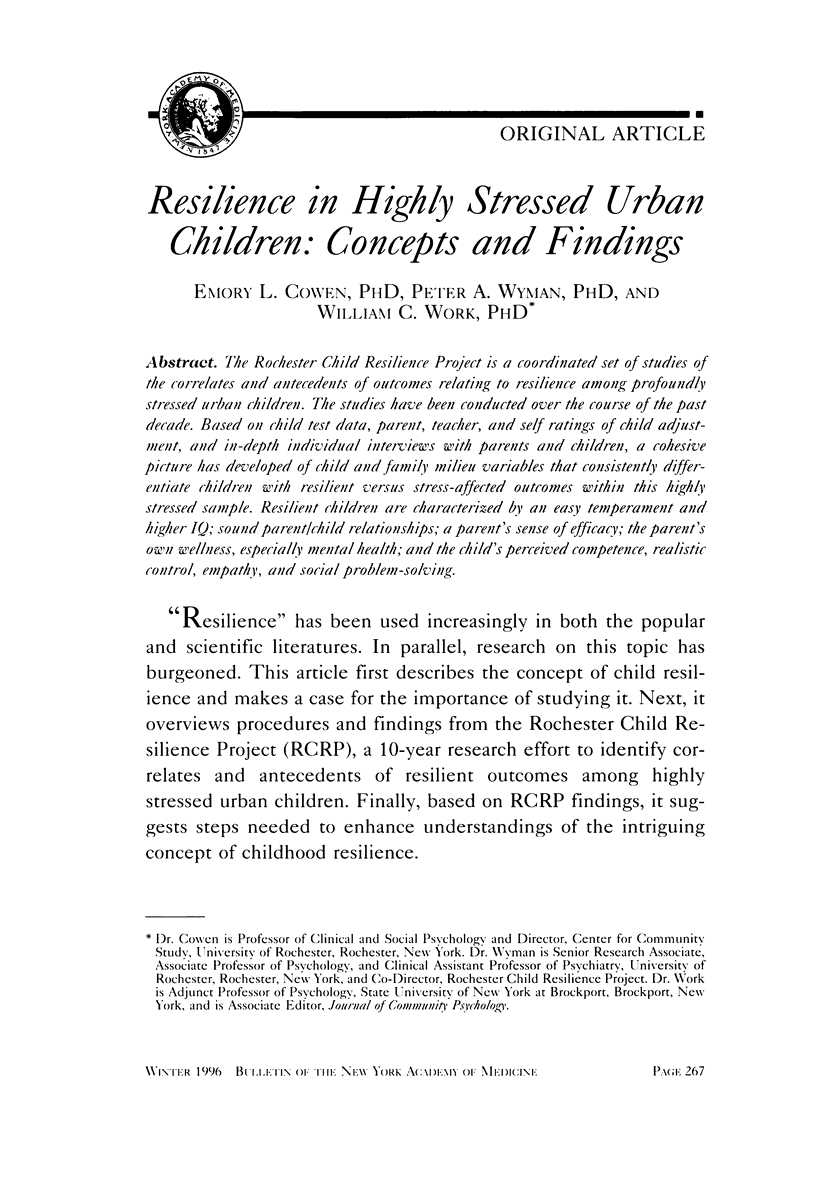
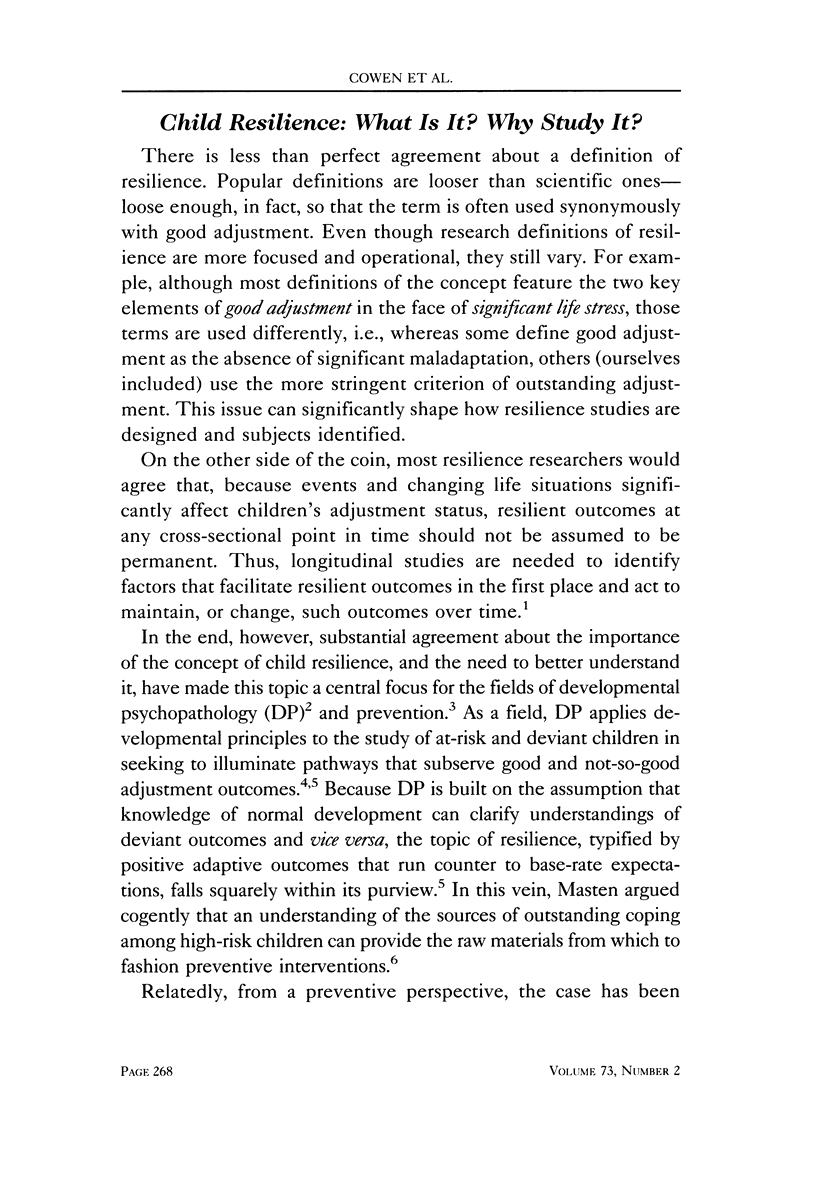
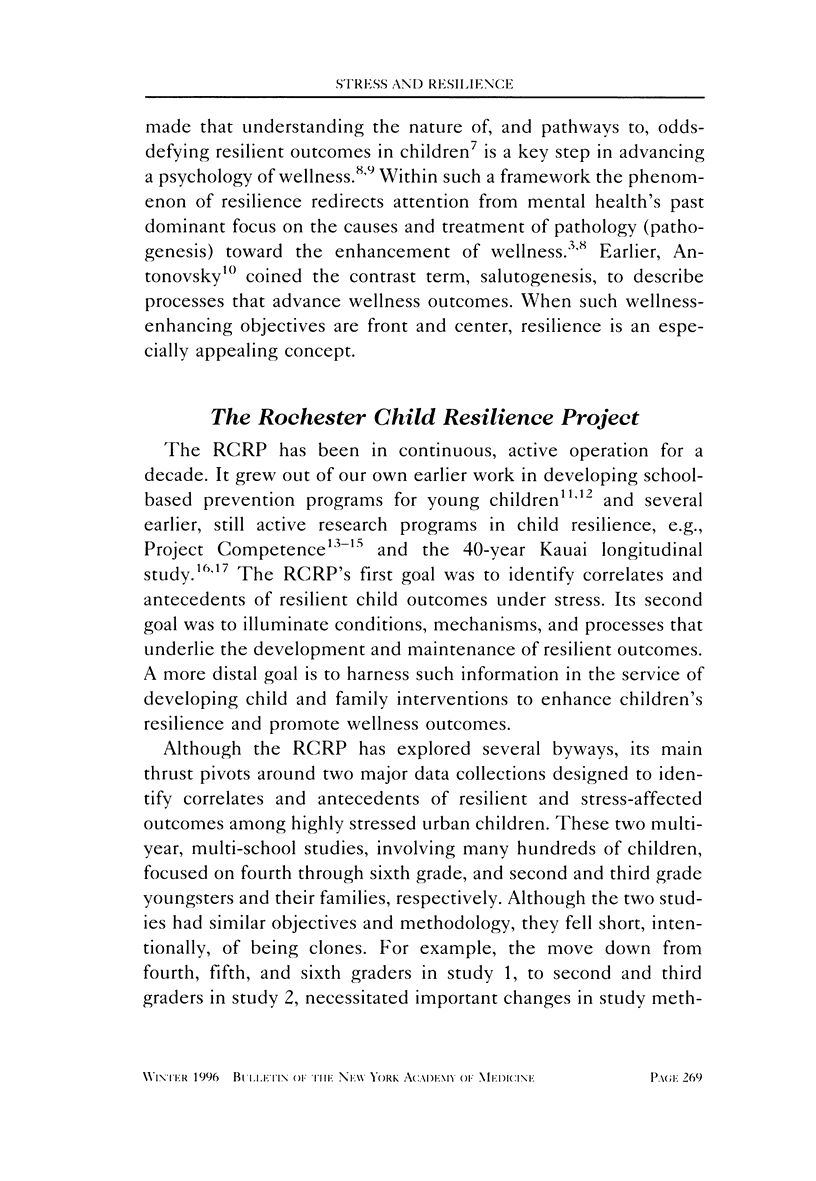
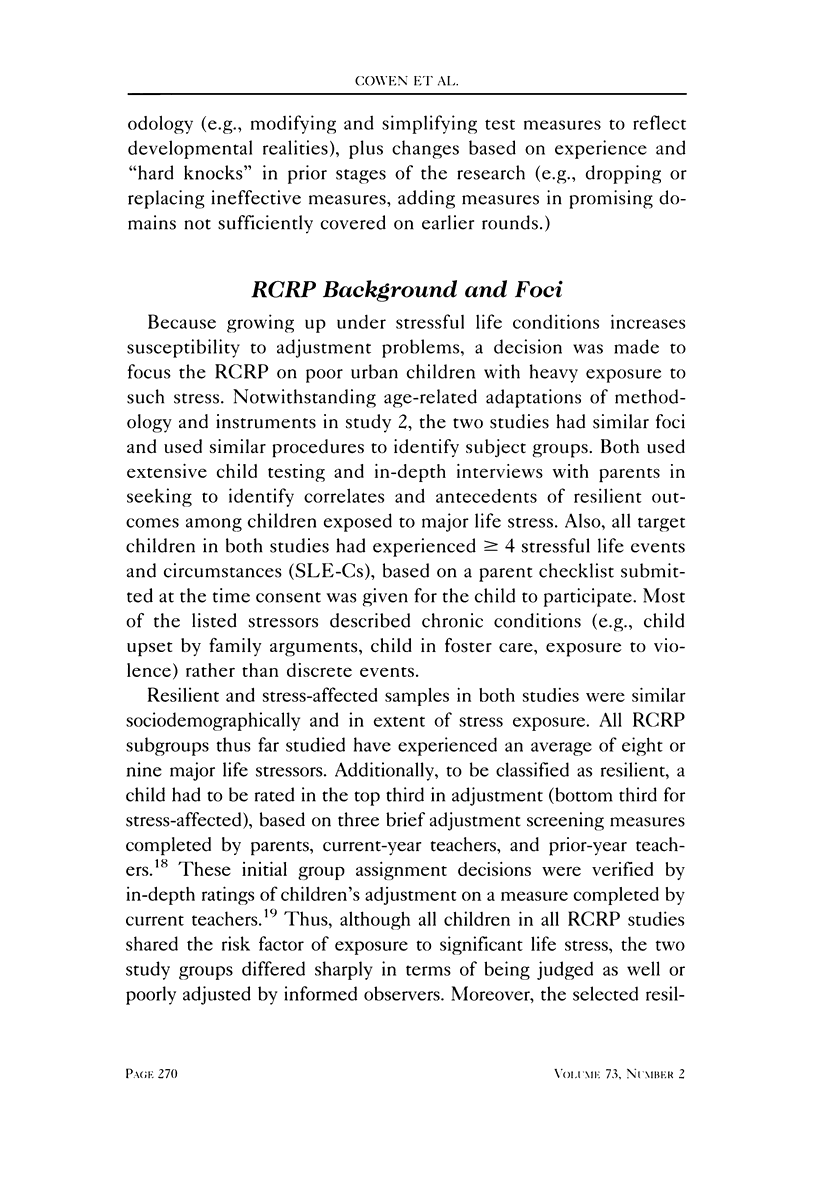
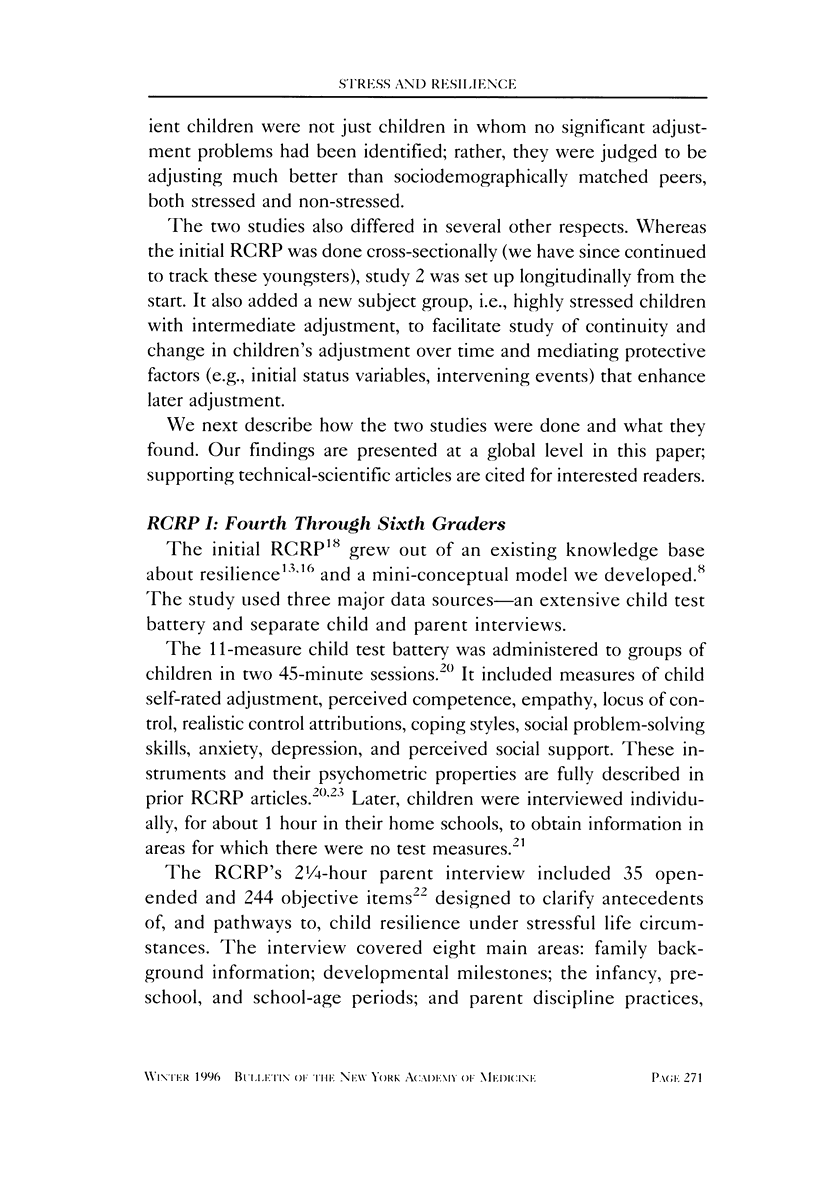
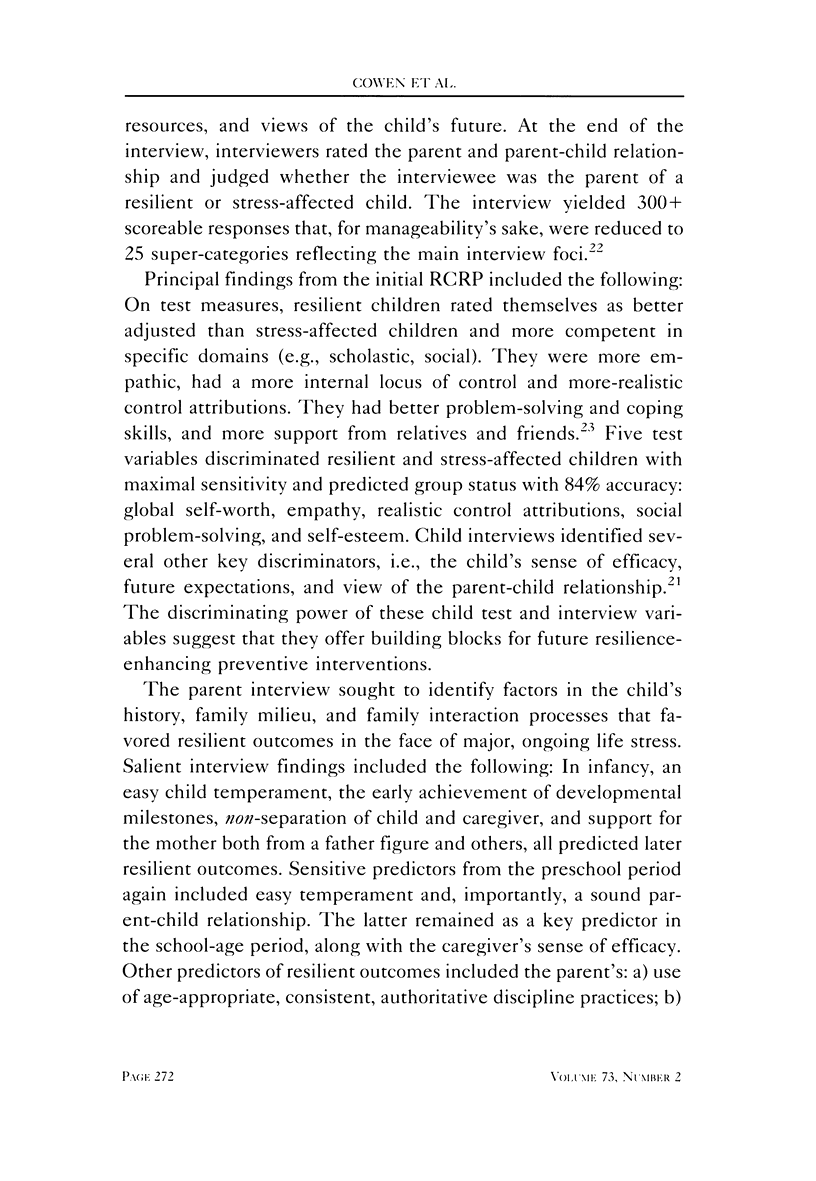
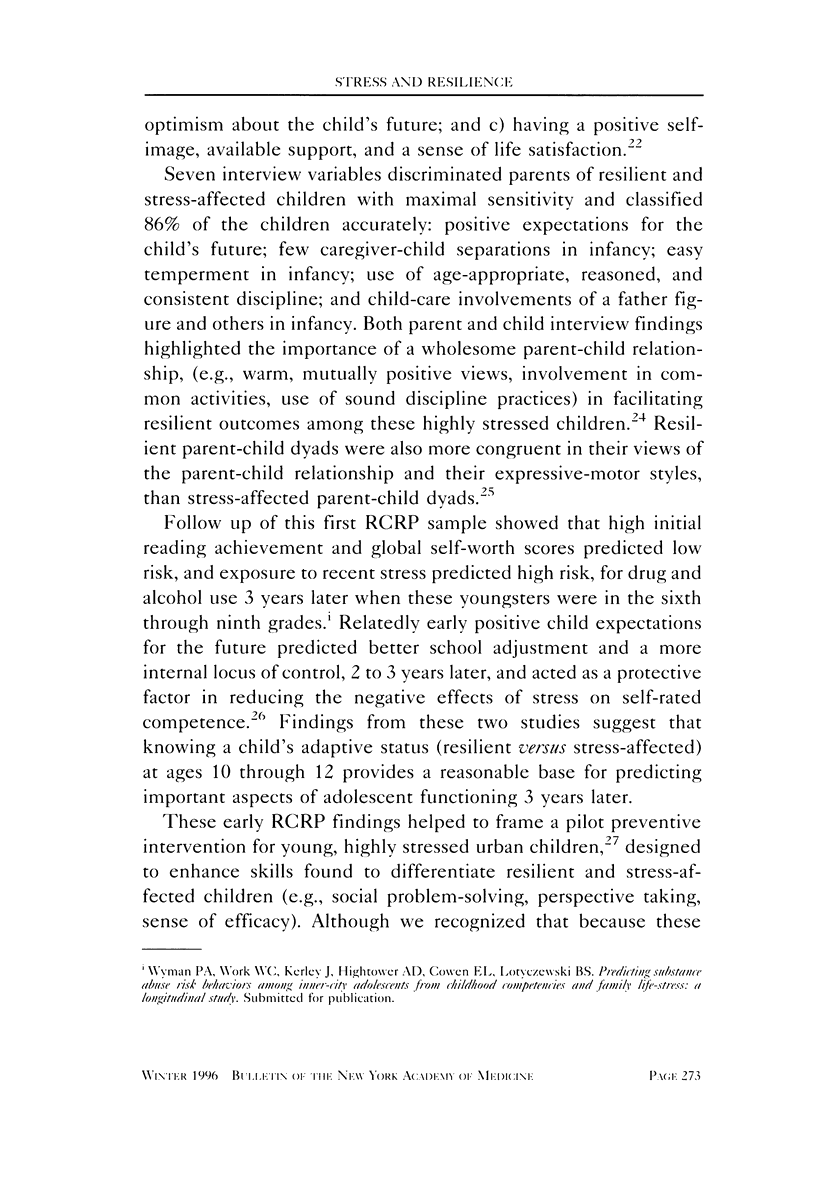
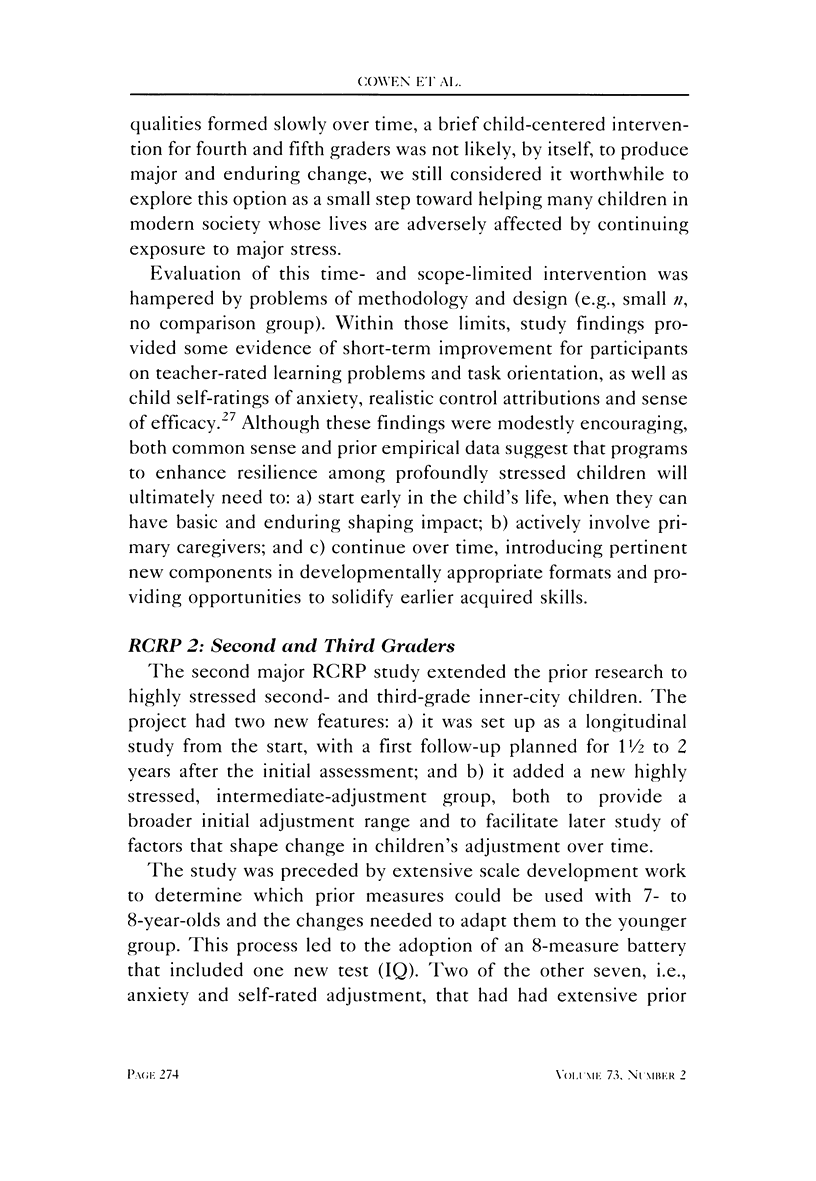
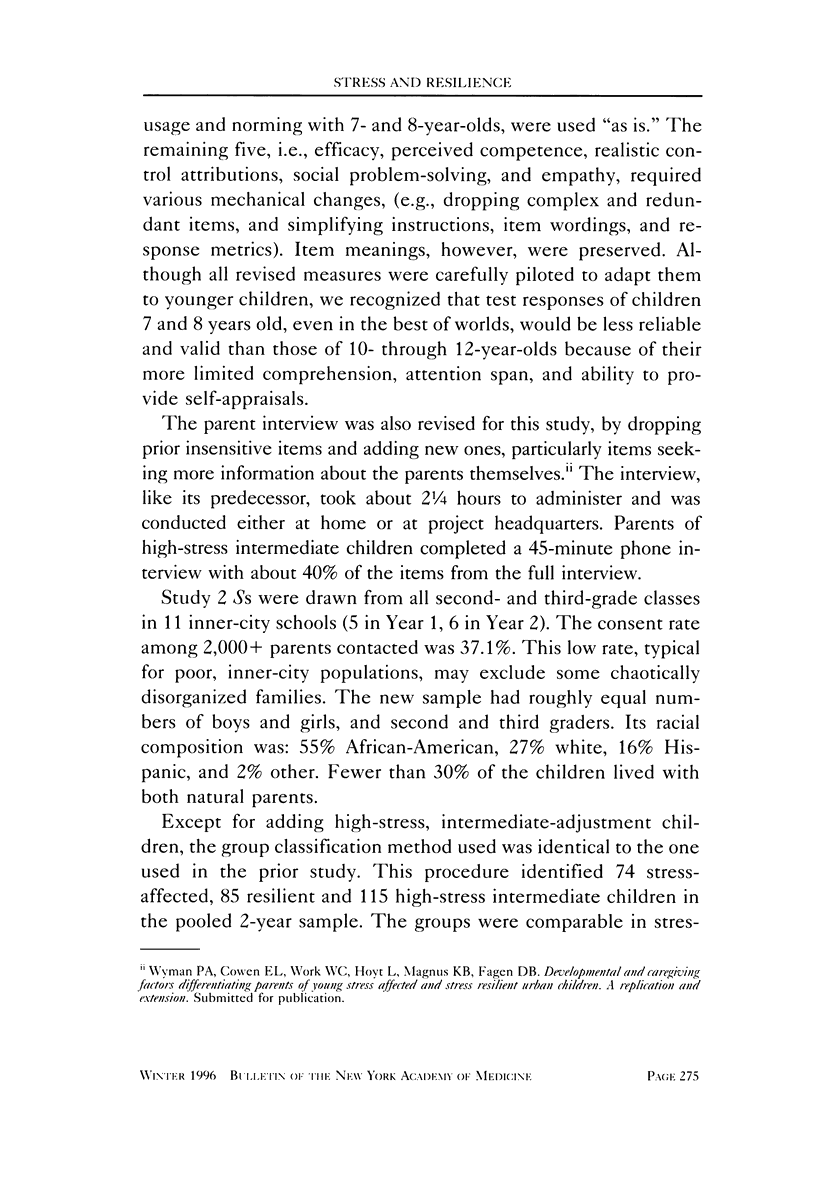
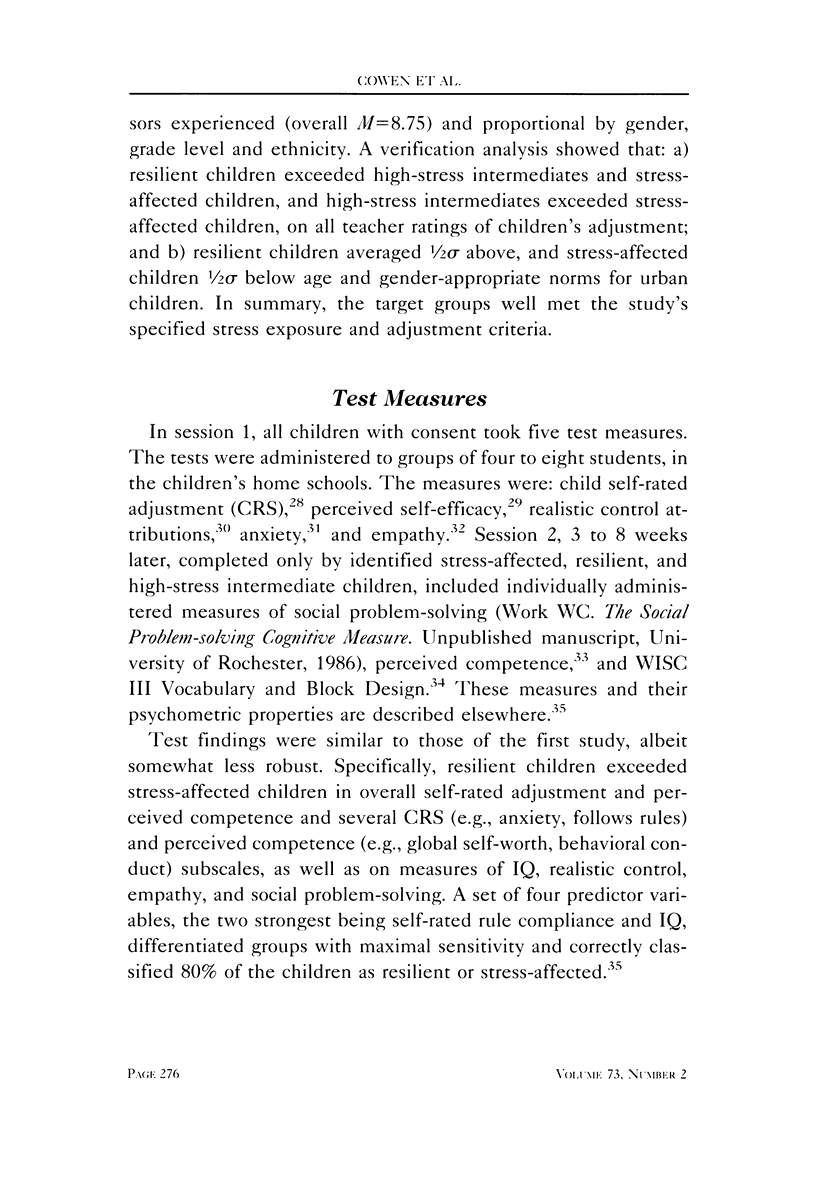
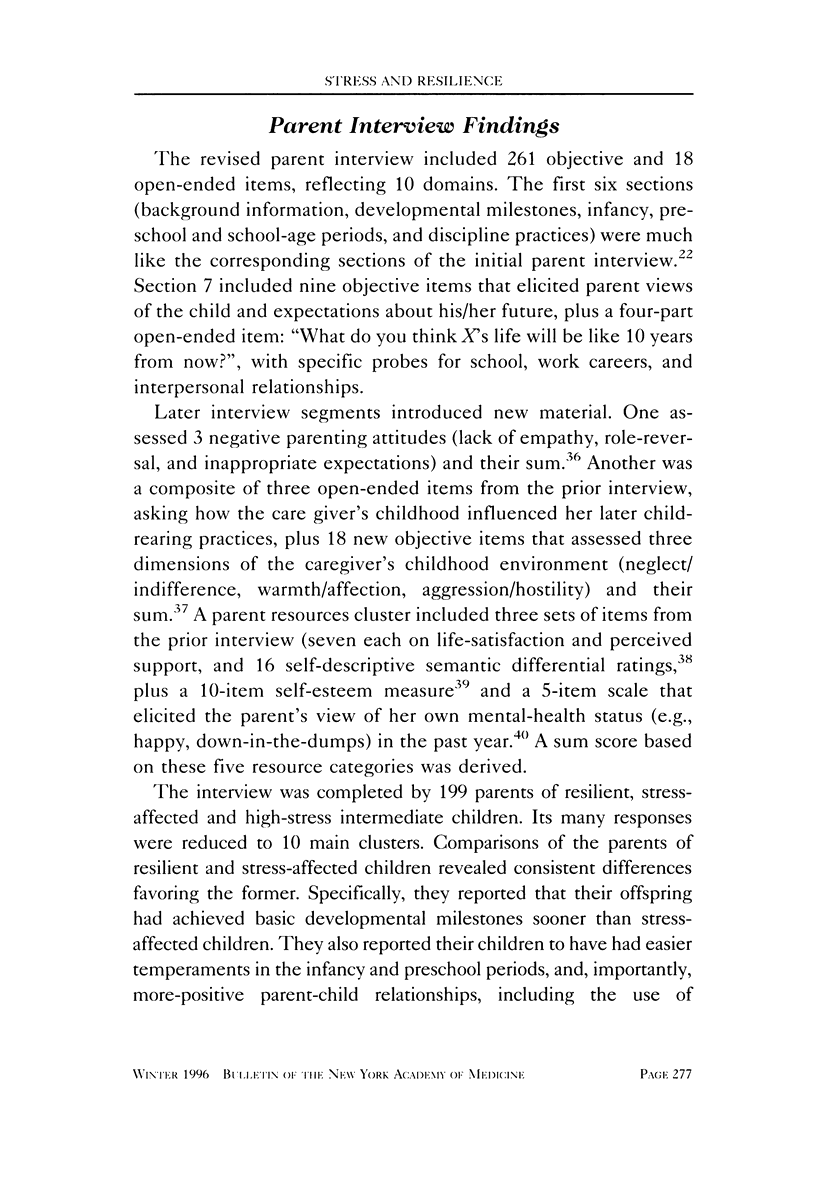
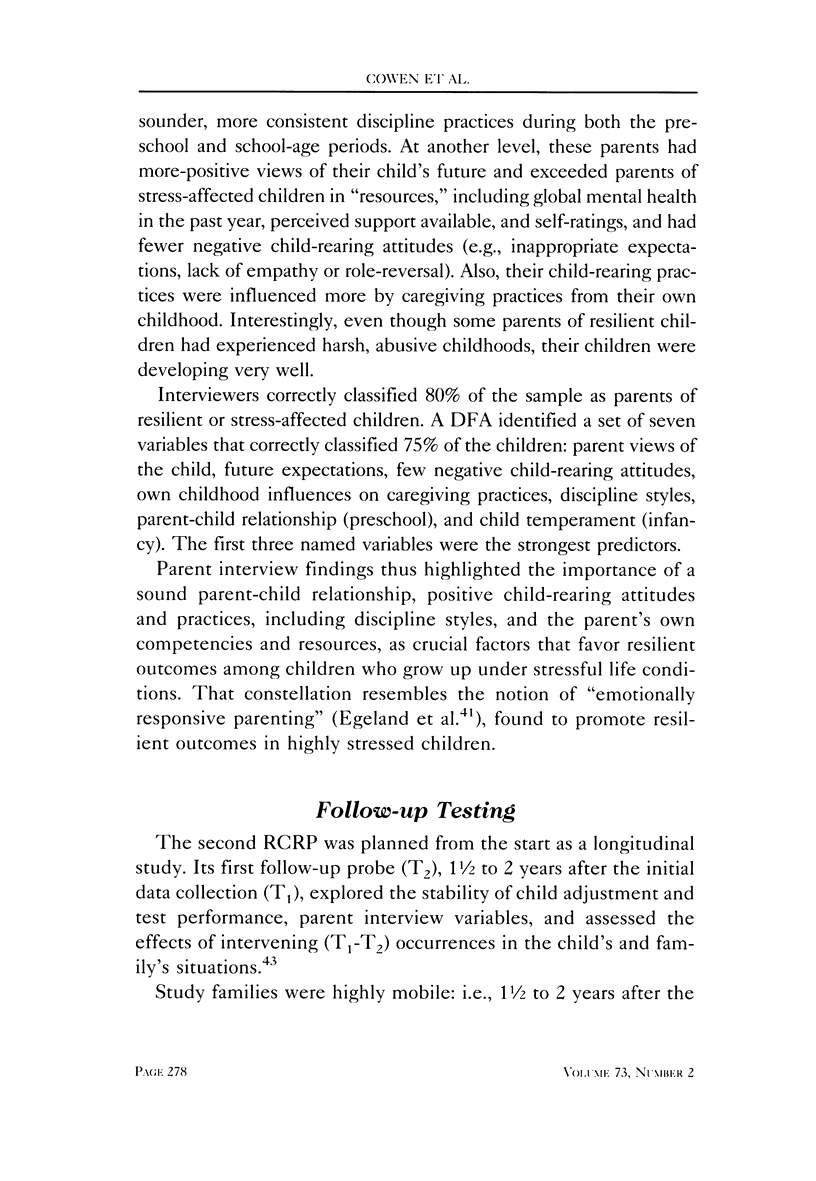
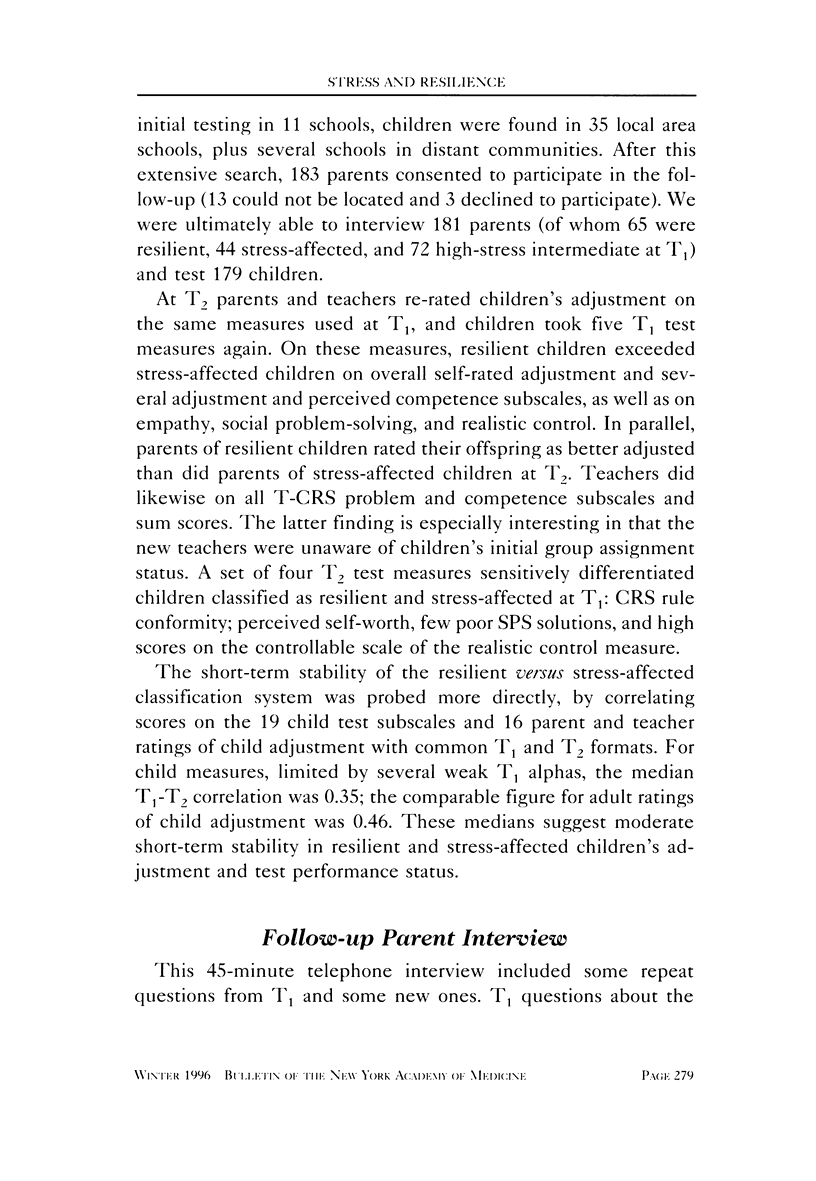
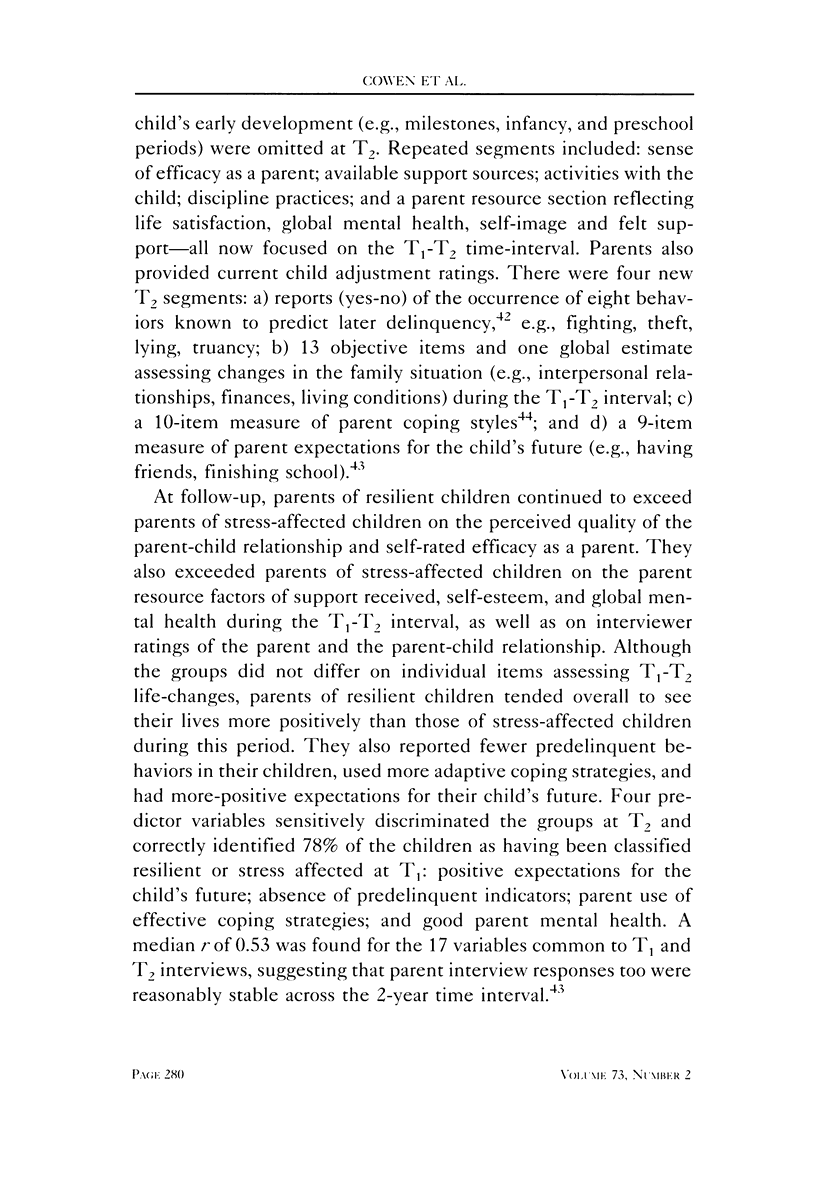
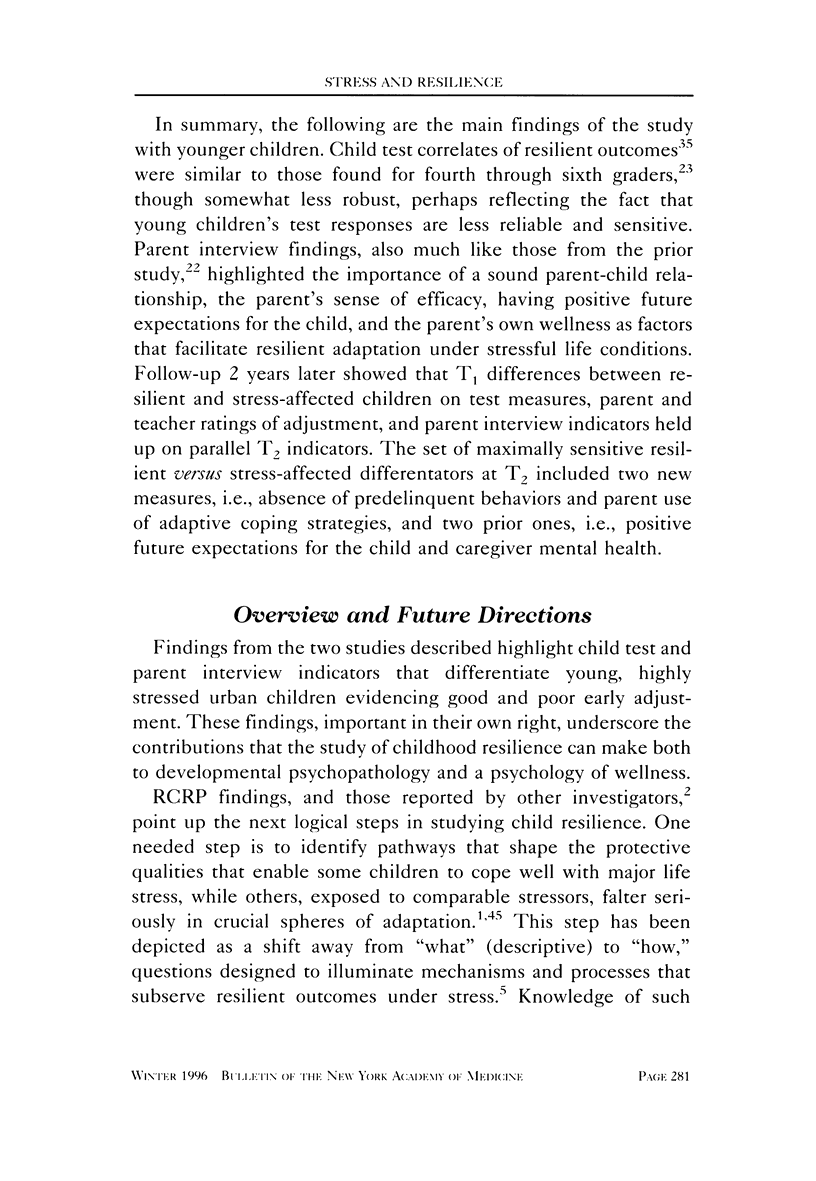
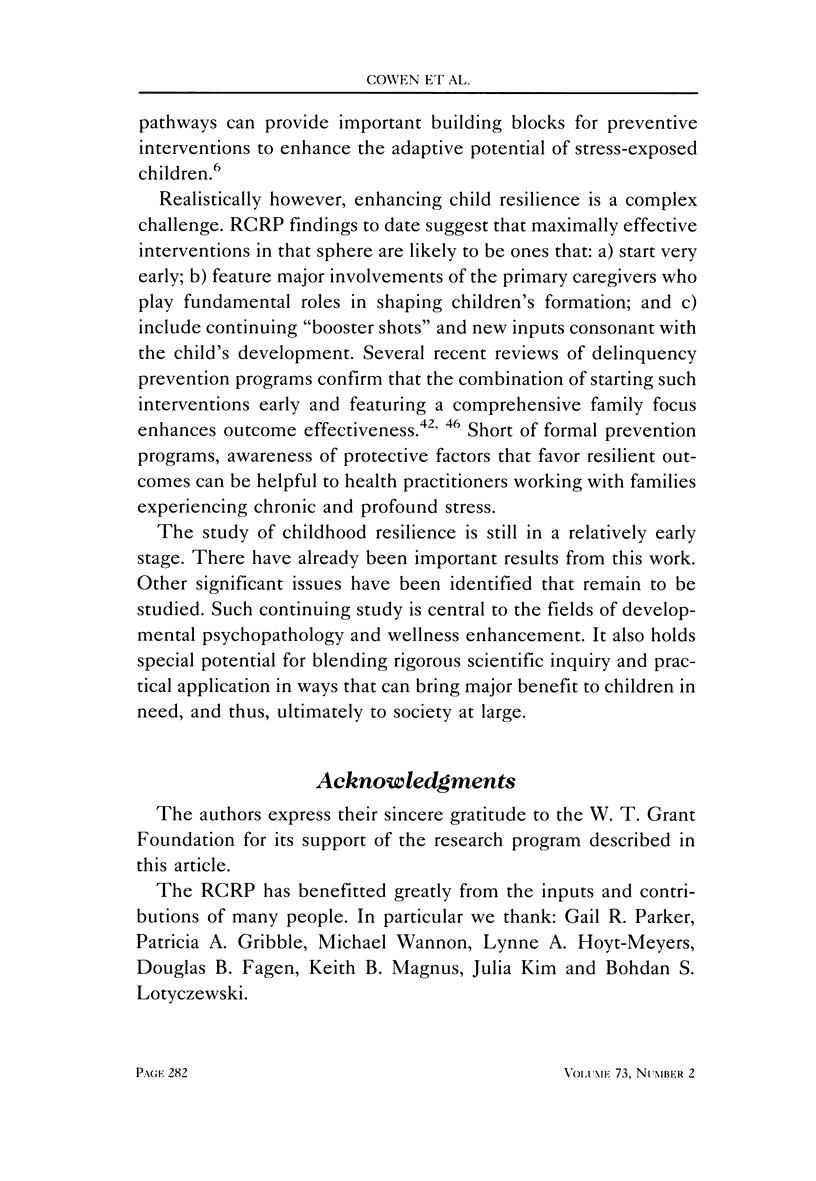
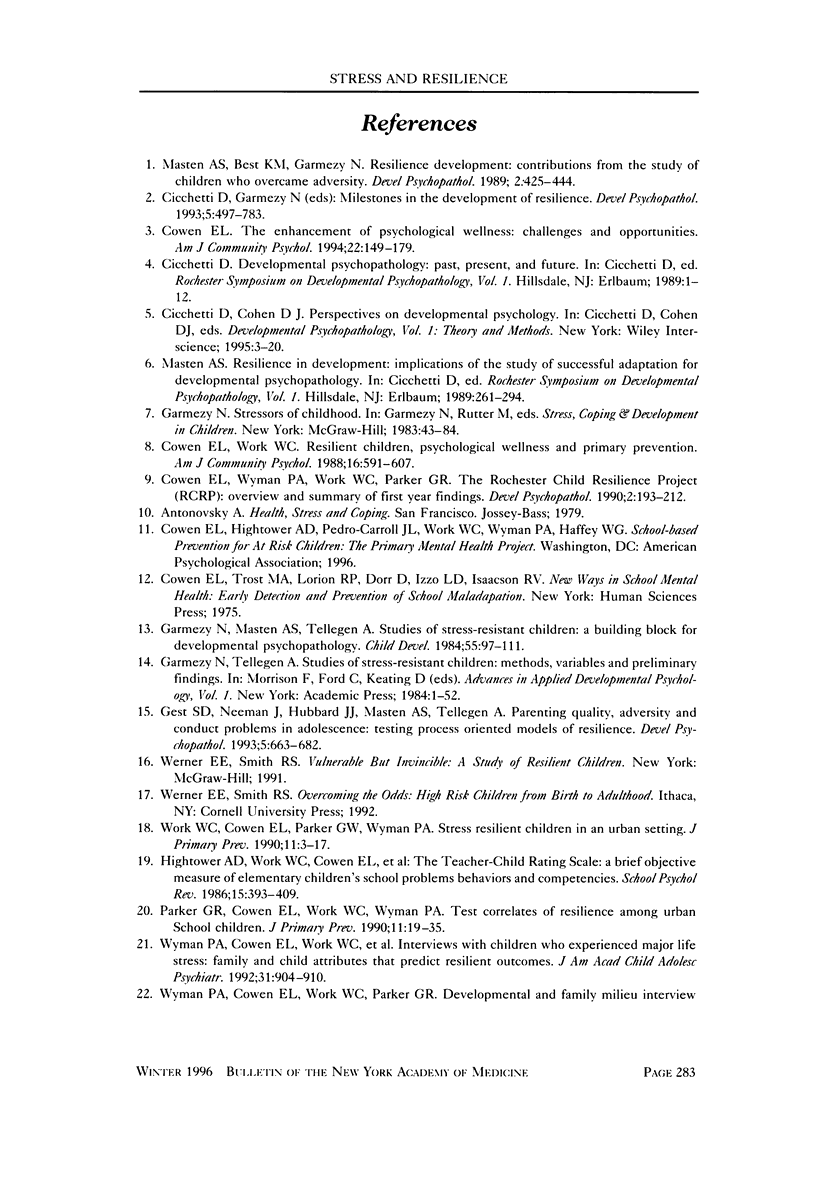
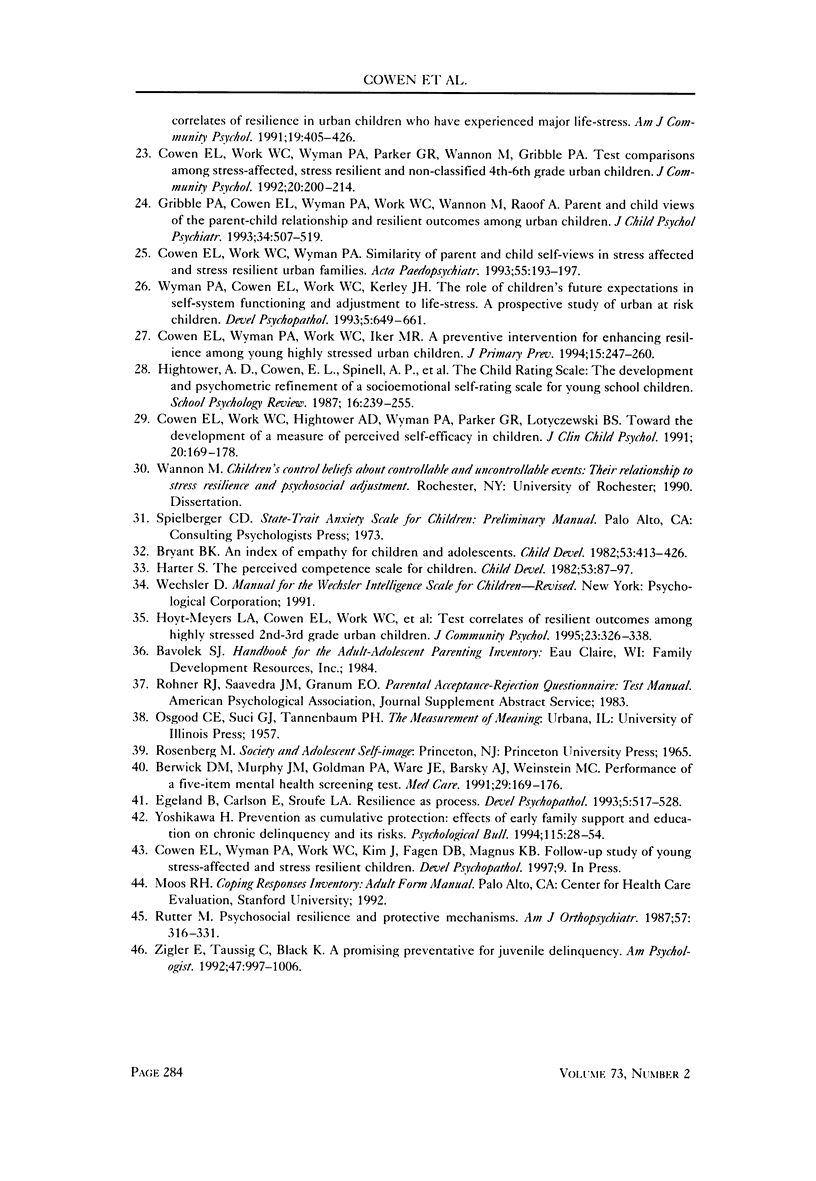
Selected References
These references are in PubMed. This may not be the complete list of references from this article.
- Berwick D. M., Murphy J. M., Goldman P. A., Ware J. E., Jr, Barsky A. J., Weinstein M. C. Performance of a five-item mental health screening test. Med Care. 1991 Feb;29(2):169–176. doi: 10.1097/00005650-199102000-00008. [DOI] [PubMed] [Google Scholar]
- Cowen E. L. The enhancement of psychological wellness: challenges and opportunities. Am J Community Psychol. 1994 Apr;22(2):149–179. doi: 10.1007/BF02506861. [DOI] [PubMed] [Google Scholar]
- Cowen E. L., Work W. C. Resilient children, psychological wellness, and primary prevention. Am J Community Psychol. 1988 Aug;16(4):591–607. doi: 10.1007/BF00922773. [DOI] [PubMed] [Google Scholar]
- Cowen E. L., Work W. C., Wyman P. A. Similarity of parent and child self-views in stress-affected and stress-resilient urban families. Acta Paedopsychiatr. 1992;55(4):193–197. [PubMed] [Google Scholar]
- Garmezy N., Masten A. S., Tellegen A. The study of stress and competence in children: a building block for developmental psychopathology. Child Dev. 1984 Feb;55(1):97–111. [PubMed] [Google Scholar]
- Gribble P. A., Cowen E. L., Wyman P. A., Work W. C., Wannon M., Raoof A. Parent and child views of parent-child relationship qualities and resilient outcomes among urban children. J Child Psychol Psychiatry. 1993 May;34(4):507–519. doi: 10.1111/j.1469-7610.1993.tb01032.x. [DOI] [PubMed] [Google Scholar]
- Rutter M. Psychosocial resilience and protective mechanisms. Am J Orthopsychiatry. 1987 Jul;57(3):316–331. doi: 10.1111/j.1939-0025.1987.tb03541.x. [DOI] [PubMed] [Google Scholar]
- Wyman P. A., Cowen E. L., Work W. C., Parker G. R. Developmental and family milieu correlates of resilience in urban children who have experienced major life stress. Am J Community Psychol. 1991 Jun;19(3):405–426. doi: 10.1007/BF00938033. [DOI] [PubMed] [Google Scholar]
- Wyman P. A., Cowen E. L., Work W. C., Raoof A., Gribble P. A., Parker G. R., Wannon M. Interviews with children who experienced major life stress: family and child attributes that predict resilient outcomes. J Am Acad Child Adolesc Psychiatry. 1992 Sep;31(5):904–910. doi: 10.1097/00004583-199209000-00019. [DOI] [PubMed] [Google Scholar]
- Yoshikawa H. Prevention as cumulative protection: effects of early family support and education on chronic delinquency and its risks. Psychol Bull. 1994 Jan;115(1):28–54. doi: 10.1037/0033-2909.115.1.28. [DOI] [PubMed] [Google Scholar]
- Zigler E., Taussig C., Black K. Early childhood intervention. A promising preventative for juvenile delinquency. Am Psychol. 1992 Aug;47(8):997–1006. doi: 10.1037//0003-066x.47.8.997. [DOI] [PubMed] [Google Scholar]


